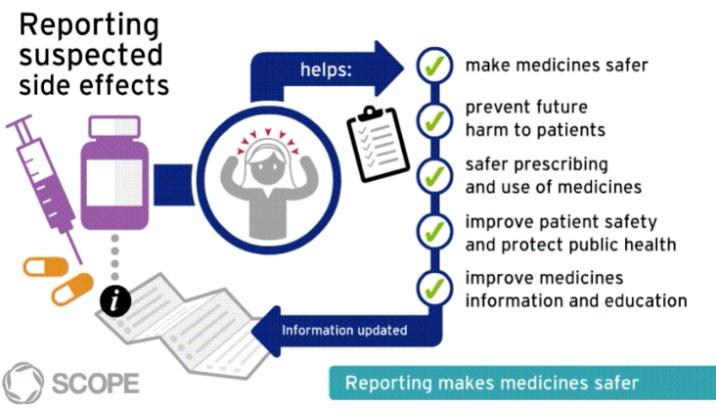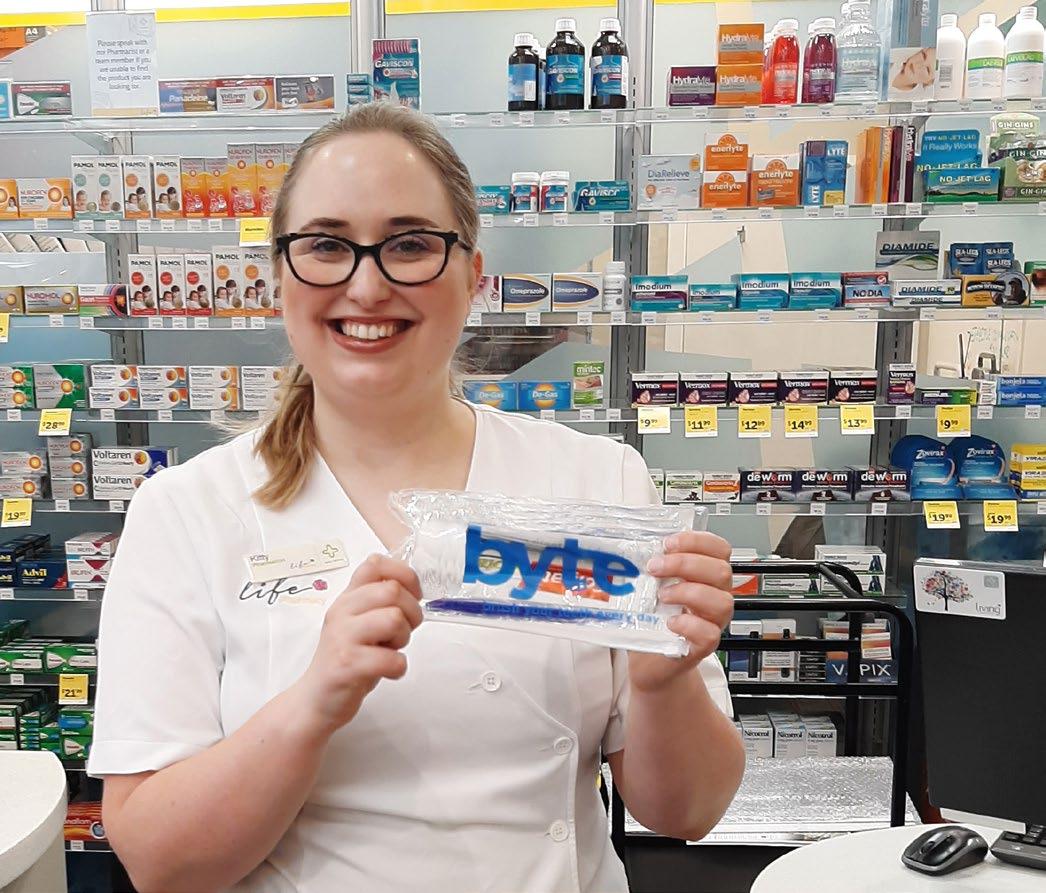
4 minute read
effects
2 November 2020
Reporting matters when it comes to side effects
Advertisement
Medicines are prescribed to make you feel better, but there are times when they can make you feel worse. This happens when you experience side effects, which are more likely to occur when you are taking several medicines or ones that don’t react well when taken together. There are even some medicines that, when taken together, can create a dangerous cocktail. This year, Medicines Safety Week runs from Monday 2 to Sunday 8 November and aims to encourage people to report any side effects they may be experiencing from their medicines. Reporting side effects helps protect patients when taking multiple medicines. It’s an important reminder whether you’re taking medicines yourself, prescribing them to patients or monitoring patients in your care. General practice teams and community pharmacists play an important role in helping manage medicines side effects and provide advice on how medications interact with each other.
Many community pharmacies in Canterbury offer a Medicines Use Review (MUR) – a service that allows a person to sit down with a pharmacist and talk about their medicines and make sure they are getting maximum benefit from them. This provides an opportunity to discuss any problems, questions or concerns regarding medicines and to work together on an action plan to address these. “Currently more than 90 pharmacies across Canterbury offer MUR,” says Canterbury Community Pharmacy Group (CCPG) General Manager Aarti Patel. “CCPG also has a mobile staff member that can deliver where an accredited pharmacist is unavailable.” People can also ask their pharmacist for a Patient Medication Card, also known as a yellow card, to help keep track of medicines.
It’s important for anyone to tell their GP, practice nurse or pharmacist if they have any dizziness, drowsiness, nausea, vision problems, or feel unsteady on their feet.
Anyone living in New Zealand who thinks they may have experienced an adverse reaction due to a medicine can report this to the Centre for Adverse Reactions Monitoring (CARM). You do not need to be a healthcare professional to report an adverse reaction. CARM informs Medsafe of any medicine related safety issues detected. For more information on how to report an adverse event to medicine, visit the MedSafe website.
For more information about medicines or medical conditions, check out at www.mymedicines.nz/cdhb and www.healthinfo.org.nz.

Help make medicines safe for everyone
Patient safety is always our top priority. Medicines can affect different people in different ways. It’s essential that any potential risks, including how a medicine is used, are understood by healthcare professionals and communicated to patients. By reporting, you can help make medicines safer for everyone, and you help Medsafe protect the public’s health through effective regulation. If you’d like to learn more about reportins Adverse Drg Reactions, check out the MedSafe e-learning course on the topic: www.medsafe.govt.nz/profs/ADR-eLearning. asp
2 November 2020
Free toothbrush packs proving popular
It was interrupted by the pandemic lockdown but a scheme to give free toothbrushes and toothpaste to patients on the methadone maintenance programme is finally taking off and proving popular. Dental Health Promotion Officer Olivia Tusa is distributing the free BYTE packs (brush your teeth every day) to pharmacies to be given to patients on the methadone maintenance programme. BYTE packs have a toothbrush and toothpaste in a reusable bag with instructions to encourage toothbrushing every day. These have been provided by the BYTE charity. The BYTE pack distribution to pharmacies was an outcome of a meeting in November last year with Liaison Pharmacist, Canterbury Community Pharmacy Group (CCPG) Robyn Harris, Olivia says. “Patients on the methadone maintenance programme are part of my target group and I saw this as an opportunity to utilise the networks and pharmacies that Robyn had established to incorporate oral health into general health and wellbeing.” An open invitation was sent to all the pharmacies that Robyn was working with asking if they wanted to participate in our project. “We received 78 replies, however we identified 30 that have more than five people on the methadone maintenance programme. One pharmacy alone supports 120 people on this programme so the BYTE packs can reach many people who could benefit from it.
Preparation started and then COVID-19 hit, she says. “Part of my overall plan to improve oral health was to visit and engage with pharmacies giving out brief advice and BYTE packs and also new pamphlets on how people on a low income can access subsidised dental care. I had to wait until Level 2 of COVID-19, to start doing this.
Pharmacist Kitty Hadley of Life Pharmacy Barrington with one of the BYTE packs

Feedback from Life Pharmacy Barrington was that toothbrush/toothpaste packs were proving so popular with its patients on the methadone maintenance programme, that the pharmacy would like them to be included in ‘welcome packs’ for the accommodation providers for homeless men and to drug addiction services. “This is what it’s all about, making connections, establishing meaningful relationships, ongoing engagement and being visible with a real presence in the community to support oral health,” Olivia says. If you have any questions contact Olivia on 021 957465 or Olivia.tusa@cdhb.health.nz






